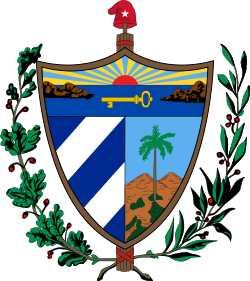 |
|---|

A constitutional referendum was held in Cuba on 15 February 1976, the first nationwide vote on the island since the Cuban Revolution. [1] The new constitution was reportedly discussed at grass-roots level by 6,216,000 citizens, resulting in 60 of the 141 articles being modified. [1] It was reportedly approved by 99.02% of voters with a turnout of 98%. [2]
